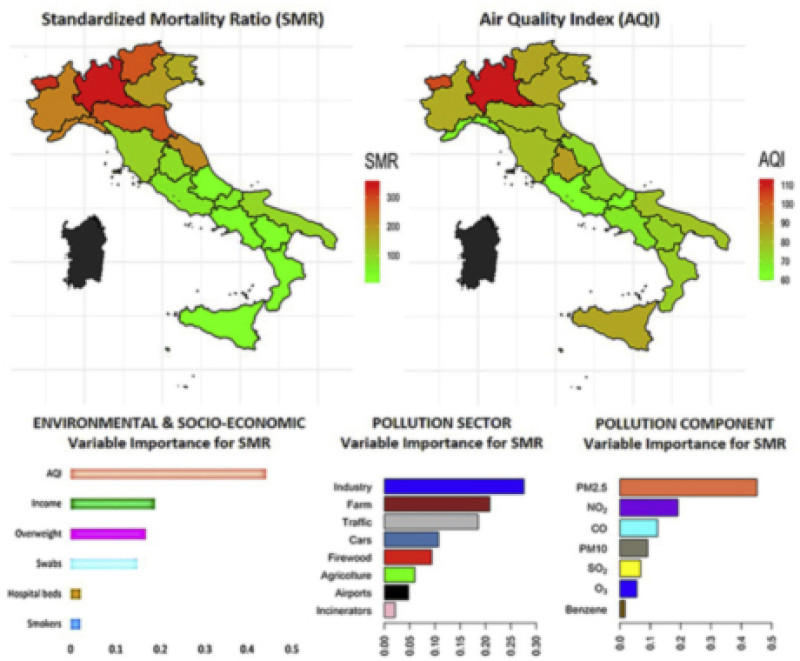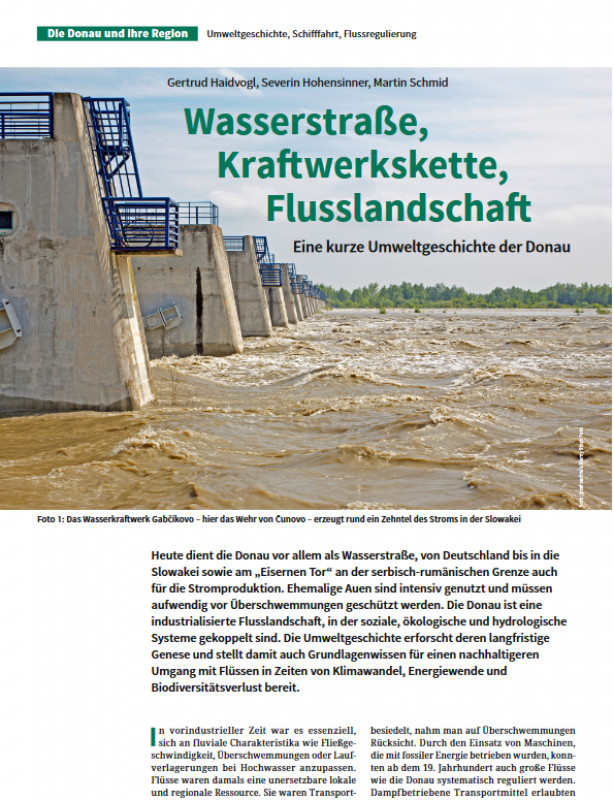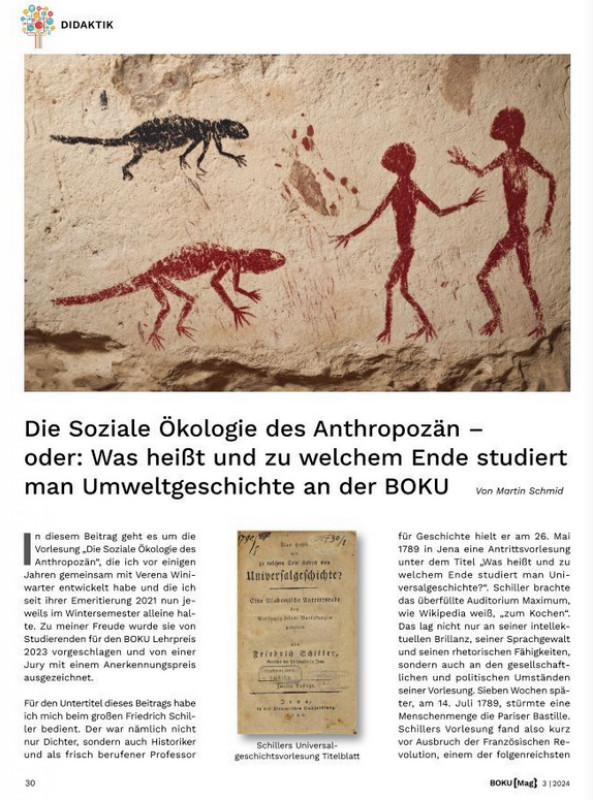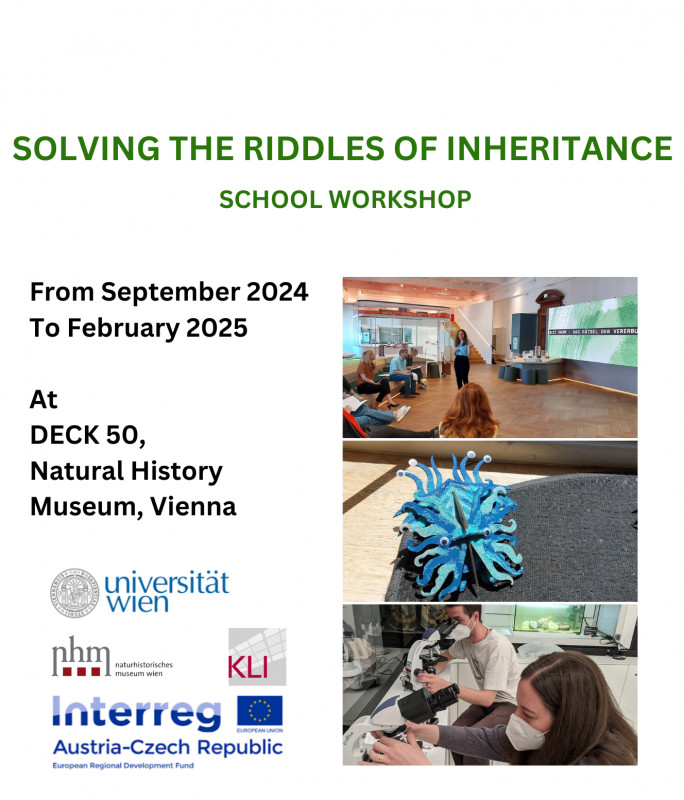News
2018-01-18
Pre-symptomatic Genetic Counselling in Austrian Clinical Practice
KLI Colloquium on Thursday 25 January 2018, 3.00 pm at the KLI. Speaker: Bernhard Hadolt (University of Vienna)
2022-09-30
Pour une autre histoire des rapports économie-environnement
KLI fellow Marco P. Vianna Franco and coauthor Antoine Missemer blog about their new book, A History of Ecological Economic Thought, in the Chroniques de l'anthropocène.
2020-08-31
Pollution is strongly related to COVID-19 deaths in Italy
A new study by KLI Fellow Roberto Cazzolla Gatti (et al.) reveals how prolonged exposure to air pollution (especially to fine particles) has contributed to SARS-CoV-2 mortality and infections in Italy
2018-11-13
Plasticity, Stress and Evolutionary Novelties
KLI Colloquium: Günter WAGNER (Yale University), Monday 19 November, 3.00 pm
2018-10-24
Philosophy Meets Art. On the Encounter between Gaston Bachelard and Albert Flocon
KLI Colloquium: Hans-Jörg RHEINBERGER (Max Planck Institute, Berlin), 30 October, 3.00 pm
2020-05-24
Philosophical Aspects of the Species Problem and Their Bearing on Comparative Biology
Virtual KLI Colloquium: Frank ZACHOS (Natural History Museum, Vienna), 2 June 2020, 5.00 pm. [br]
To join our online colloquium please register with Zoom.
2025-04-22
Phenotypic Robustness across the Genotype-Phenotype Map, from Genes to Environment and Back
Luisa PALLARES, 2025-04-30 15:00 (CET). Please join our colloquium via Zoom!
2019-08-20
Part 2 of Wim HORDIK´s article on the history of origin of life research in ORBITER magazine
As a young student in Russia, Alexander Oparin learned about Darwin’s theory of evolution by natural selection. However, even though it was a convincing theory of how life on earth had evolved, it did not have anything to say about how it started.
2024-06-07
Parametric General Systems Theory and How to Apply It
Ievgeniia IVANOVA (University of Stirling, UK), 2024-06-13 15:00 (CET). To join our colloquium please register with Zoom
2024-10-09
Outreach: Waterway, power plant chain, river landscape: A short environmental history of the Danube
Martin Schmid, along with co-authors Gertrud Haidvogl, Severin Hohensinner published an article titled ‘Waterway, power plant chain, river landscape: A short environmental history of the Danube’ in the magazine Geographic Round-view - Issue 10/2024 (October). This article is mainly targeted at Class level 11 (until 13th School year)
The article (in Deutsch) tells the environmental history of the Danube river, its genesis, its former floodplains that are now being intensively built up, and basic knowledge for more sustainable use of the river in the light of current climate change.
2024-09-27
Outreach: The Social Ecology of the Anthropocene
In an invited article for the Boku Magazine, Martin Schmid introduces his lecture “The Social Ecology of the Anthropocene”, which encourages long-term, interdisciplinary thinking by looking back into the past. With the climate crisis, the rapid loss of biodiversity and other global crises, it reveals the Anthropocene as a specific, historically unique way in which human societies relate to nature. (Click on title to read more...)
2024-09-28
Outreach: Solving the Riddles of Inheritance - School Workshop
Barbara Fischer, along with a team comprising of Lynn Chiu, Severin Bachmayer and others created a workshop titled Solving The Riddles of Inheritance, specifically designed to teach school students the different modes of inheritance as well as the interplay between genes and environment on the visible traits of an organism. With emphasis on familiarising students with scientific methods and scientific thinking, this workshop includes hands-on Art-Science Activity, Microscope Laboratory Activity, and a Science Quiz.
2025-05-06
Outreach: Fresh insights on the Obstetrical Dilemma
A recent paper in Science by Vagheesh Narasimhan and his team from the University of Texas sheds new light on the 'Obstetrical Dilemma' – the long-debated conflict regarding the optimal pelvic structure for bipedalism and successful childbirth in humans. Christina Berndt of Süddeutsche Zeitung covers this new finding, along with perspectives and insights from international researchers in the field, including Barbara Fischer and Philipp Mitteroecker of the KLI. (Click on the title to continue.)
2025-06-04
Outreach: Anne Le Maître presented her work at the French Embassy in Vienna
KLI Senior Post-Doc Fellow Anne Le Maître presented a talk about her work at the Symposium of the Network of French Researchers in Austria, held at the French Embassy in Vienna on 22 May 2025, on the occasion of the France Alumni Day. This event is organised in May and June across the world to bring together alumni of French universities, and celebrate the laureates of research fellowships and scholarships for long stays in France. In her talk, “Evolutionary biology – Evolvability of the ear in primates”, Anne explained how understanding the relationships between ear morphology and primate ecology and behaviour provides insights into more general evolutionary processes related to the capacity for adaptive evolution, namely evolvability. (Click on title to read more.)
2022-12-13
Our KLife Newsletters are now online!
PDF versions of our KLife Newsletters are now available for download.
2018-04-30
Organismic Constraints on Somatic Evolution of Lymphocytes
KLI Colloquium: Bartlomiej SWIATCZAK (University of Science and Technology of China), 24 May, 3.00 pm
2020-04-24
Optimal Model Complexity in Sustainability Science
VIRTUAL KLI COLLOQUIUM: Alkistis ELLIOTT-GRAVES (University of Helsinki), 28 April, 5.00 pm. For pre-registered participants only!
2021-05-18
Opening Up Science in Museums – Experiences and Challenges
Katrin VOHLAND (Natural History Museum, Vienna), 27 May 2021, 3.00 pm. To join our colloquium please register with Zoom.
2022-05-24
On the Sustainability of Human Niche Construction
Christian DORNINGER (KLI), 2 June 2022, 3.00 pm. To join our colloquium please register with Zoom.




















